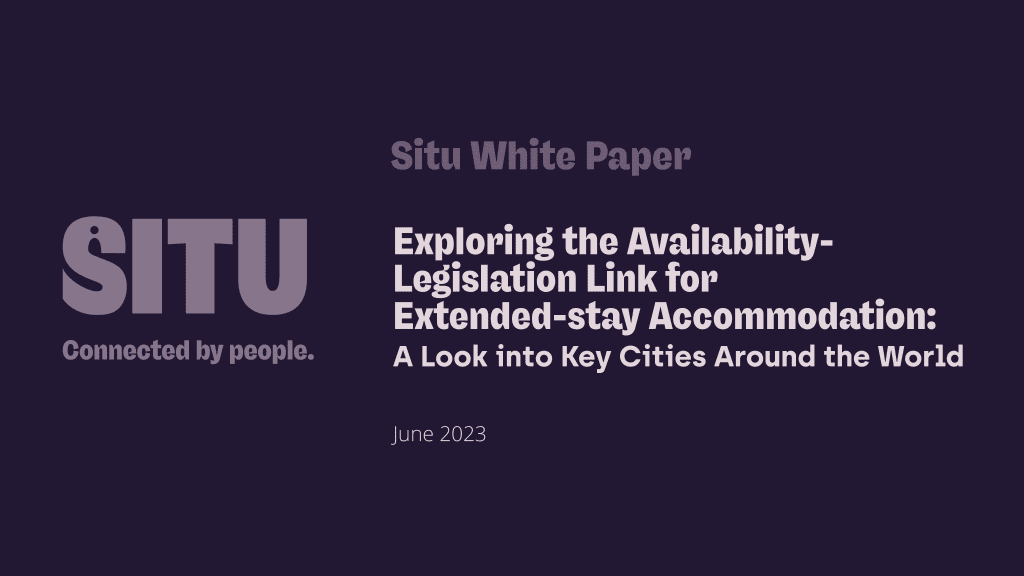Based on recent research with industry leaders and accommodation partners across our global supply chain, we have released another white paper on how legislation and other factors are currently impacting the supply of short-term rental accommodation in ten key global locations, and how this is affecting the extended-stay sector.
Locations researched and reported on include London, Edinburgh, Dublin, Paris, Amsterdam, Brussels, New York City, Boston, Singapore, and Sydney, with the main conclusion being one of complexity – because no one city is the same as the other, and none of the factors affect availability in the same way.

The variables that come into play include new and often stricter regulations; the current economic climate – both globally and specific to each location; post- pandemic changes to travel and traveller habits; and how availability at peak times such as during high tourist season and during major events is influenced.
The drive for regulation in the short-stay accommodation sector has, in part, been prompted by the rise in digital booking platforms for single vacation lets and the effect that these can have on the housing market and the character of local neighbourhoods. These new rules inevitably have an impact on the short-term letting and extended-stay sector.
Phil Stapleton, Situ’s Founder and CEO says, “Whether short- or long-term accommodation is required, and wherever in the world it is needed, it is becoming increasingly evident that there are similar challenges around changing regulatory environments presenting themselves in each market.
Even greater collaboration across the sector would be welcome. By promoting a better understanding among a broader audience, we will position the sector favourably to avoid limitations as the industry continues to grow.”
“Each location has its own nuances and challenges right now,” says Rebecca Gonzaga, Situ’s Managing Director. “Thankfully, we have the understanding, expertise, resources, and capability to guide our clients through these to secure quality accommodation that meets their requirements.”
As well as analysis and commentary from some of the world’s major cities, the paper also goes on to consider the investment climate for extended-stay accommodation in London and some cities in Europe, and how this can also impact supply and availability in the sector.
We look forward to continuing the dialogue with our colleagues in the industry at this time of both challenge and opportunity. Do get in touch with any comments!

